This store requires javascript to be enabled for some features to work correctly.
-
DECANT NAPA is open! Switch to NAPA store
-
Save 10% automatically when you add 12+ bottles to your cart!
-
DECANT SF & NAPA will be closed for holiday break 01/01-01/06/2025
- Winemaker: Jean-Michel Deiss
- Farming: Organic (Ecocert), biodynamic (Demeter). 8,000 vines/ha.
- Variety: Riesling co-planted with other varieties
- Terroir: Extremely steep, south-facing slope. Cooling influence from western winds. Multiple parcels of terraced vineyards with shallow granitic sand and gravel topsoils. Larger cobbles are removed by hand to build the terraces’ retaining walls.
- Vinification: Pressed 12+ hours with whole clusters. Ambient yeast fermentation, aged for 12 months on the lees in casks. Light filtration.
- Tasting Note: Always impressive and long-lasting, this field blend is dry but impactful. Aromas of yuzu, asian pear, fresh gooseberries and wet stone all swirl around the palate. Pair it with a creamy, cheesy baked chicken or an aromatic lemongrass-coconut curry.
About the Winery:
No one will argue that Deiss is among the top two or three domaines of Alsace. As to the rest, Jean-Michel Deiss is what the French call, a fouteur de merde, a shit-stirrer. After an old man on his deathbed entrusted him with one of Alsace's gems, the Schoenenbourg vineyard, Jean-Michel found that it was planted to an old field blend or “co-plantation.” He soon realized that this was the missing link in his quest for great wine and he replanted every single one of his top vineyards to such blends. Though this had once been the norm in Alsace, by the time Jean-Michel planted his grand crus to field blends, it was a technique reserved to lowly wines. Then, he took on the Alsatian cru system. Too many grand crus, and too large at that, but no premier crus was idiotic, he thought, and he self-appointed seven of his top vineyards “premier crus.” When you taste them, it makes crystalline sense, but this is technically an illegal practice and Jean-Michel has been battling the authorities ever since. His latest concern is to have ancient but currently illegal Alsatian varieties added to the list of authorized grapes. A troublemaker indeed, but the wines are absolutely magical.
From our October 2023 Club notes:
Marcel Deiss Schlossberg Grand Cru, Alsace, France 2020
He's been called many things-- a visionary, a prolific winemaker, a rebel and the best one-- a fouteur de merde, a shit-stirrer. Jean-Michel Deiss was once bequeathed an old winegrower's Schoenenbourg vineyard, an Alsatian gem, while the man was on his deathbed. Soon after, Jean-Michel came to find out that the vineyard site was co-planted to numerous varieties, in line with the very old (but dead) traditions of the area. Loving the concept, he soon re-planted all of his vineyards to co-plantations! But it was much to the ire of the local winegrowing authorities. As laws became more established in the Twentieth century, Alsace shifted from a place where field blends were the norm to an area where mono-variety plantings were more prized for Grand Cru vineyard designations; field blends became reserved for seemingly "low quality" wines.
But Jean-Michel's philosophy is that the grapes that are planted in any given place need to best be suited to their terroir. Alsace is known for having massive Grand Cru vineyard plots; Jean-Michel's belief is that sometimes Riesling might be best suited to one side of the slope, but perhaps Pinot Blanc is better for the opposite side. In Alsace, where there are over a dozen permitted grape varieties, the combinations of grapes, vineyard exposures and soil types means that the possibilities could be endless in terms of what grows best where! He continues to stir the pot by taking on the local Alsatian Cru System: Too many (very large) Grand Crus, but no premier crus--doesn't make much sense, he thought. So, he self-appointed seven of his top vineyards to “premier crus.” The concept of Premier Crus in Alsace is technically an illegal practice, but Jean-Michel has been taking on the fight, hoping to change the rulebook. His current crusade is to have ancient but currently illegal Alsatian varieties added to the list of authorized grapes...we wish him good luck! He's truly a rare progressive thinking in a wine region that can often be viewed as very stubborn and slow to evolve.
Now, on to the wine! Schlossberg is a Grand Cru vineyard site in the northern part of the Haut Rhin area of Alsace, ner the city of Colmar. It is on an extremely steep, south-facing slope. The western winds help to cool the vines that are planted across multiple parcels of terraced vineyards with shallow granitic sand and gravel topsoils. The vineyard is densely planted with a field blend that is dominated by Riesling, and farmed biodynamically. The grapes are all pressed together over a 12+ hour period with whole clusters. The juice undergoes native yeast fermentation, and the wine is aged for 12 months on the lees in ancient casks. There is light filtration before bottling. The Deiss wines are always impressive and long-lasting on the palate; this field blend is dry and impactful, worthy of being held in your cellar for a decade or two. Aromas of yuzu, asian pear, fresh gooseberries and wet stone all swirl around the palate, and with age they will become denser and more concentrated. Pair it with a creamy, cheesy baked chicken, an aromatic lemongrass-coconut curry, or the finest, runniest cheeses you can find. — Simi Grewal
Join our Mailing List
Land Acknowledgement
We acknowledge that we are on the unceded ancestral homelands of the Ramaytush Ohlone (the original inhabitants of the San Francisco Peninsula) and the Wappo & Miwok (the original inhabitants of Napa County).

